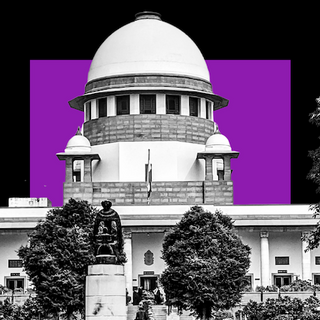Excluding a daughter from being considered for appointment on compassionate grounds to a government job held by her deceased father simply because she is married is not only discriminatory but also unconstitutional, the Karnataka High Court ruled in a landmark judgment last month.
It is a rejection of the patriarchal norm in India that treats married daughters as ‘paraayaa,’ or ‘not one’s own.’
“Marriage does not determine the continuance of the relationship of a child with the parent, whether son or a daughter. Son continues to be a son both before and after marriage, and a daughter also should continue to be a daughter both before and after marriage. This relationship does not get effaced by the fact of marriage, as marriage does not severe [sic] the relationship of the daughter with the parent,” Justice M. Nagaprasanna said, delivering the judgment.
Related on The Swaddle:
Bombay HC Orders Release of Sex Workers, Says Adult Women Have The Right To Choose Their Profession
The ruling came amid a case wherein a deceased government employee was survived by his wife, a son, and a daughter. The provision of compassionate appointment can be invoked if a government employee dies before retiring from their position. The man’s wife refused the compassionate appointment, citing ill health, and his son declined it, since he was already employed at a private firm. However, his daughter sought the appointment, stating that her mother had moved in with her following the death of her father and was now under her care. However, her request was denied, as the Karnataka Civil Services (Appointment on Compassionate Grounds) Rules, 1996 prevent married daughters from securing their fathers’ positions.
The court deemed the rules “per se discriminatory” and outdated. “The interpretation of law has always undergone a change with changing times. If the offending provision is left as it is, it would be putting the clock back from where the law has progressed over the years,” Justice M. Nagaprasanna noted.
“If the marital status of a son does not make any difference in law to his entitlement for seeking appointment on compassionate grounds, the marital status of a daughter should make no difference, as the married daughter does not cease to be a part of the family and law cannot make an assumption that married sons alone continue to be the part of the family,” Justice M. Nagaprasanna added.




